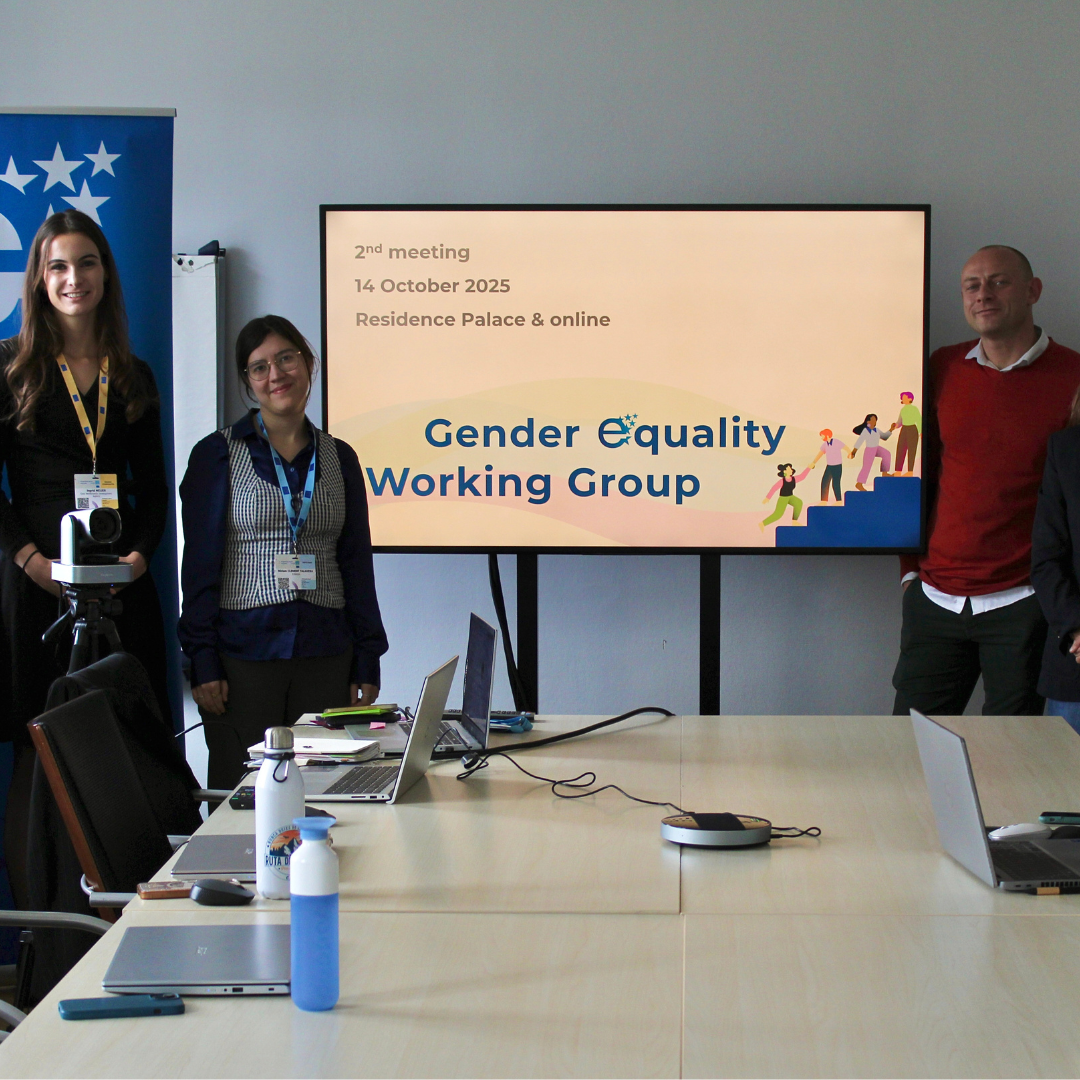The GE-WG, co-led by SPRI (Spain) and ART-ER (Italy), has seen a steady increase in participation since its creation. Beyond the growing number of members, the meetings have reflected a high level of engagement and a clear commitment to promoting gender equality across regional innovation and development ecosystems. Members have demonstrated a shared determination to translate gender equality principles into practical, context-sensitive measures within their organisations and territories.
This second meeting provided an opportunity for members to continue exchanging experiences on the implementation of gender equality measures, with a particular focus on Gender Equality Plans (GEPs) and related initiatives. The session also welcomed two new WG members: Agence Bretagne Next (France) and Southwest Oltenia RDA (Romania).
Oost NL, represented by Ingrid Meijer, presented their Diversity and Inclusion Policy, which combines an internal and external approach. Internally, the agency raises awareness and fosters equal opportunities among employees, while externally, it promotes equality across its portfolio companies and investments. A notable example of this external work is their participation in the #Fundrightmovement, launched in the Netherlands after discovering that only 1.6% of venture capital went to companies with a female (co-)founder. Through this initiative, Oost NL strives to improve access to financing and opportunities for underrepresented groups. They also shared an inspiring internal initiative — an internal communication channel where staff regularly exchange reflections and news to spark daily conversations around gender and inclusion — reminding us that while policymaking is needed, everyday interactions can be equally powerful (and essential) drivers of cultural change.
FUNDECYT-PCTEX, represented by Patricia Bermejo, presented their GEP, which integrates EU compliance with a strong commitment to Responsible Research and Innovation (RRI). Their work embeds gender equality across science, technology, and innovation policies through actions such as audiovisual projects on women scientists and programmes encouraging girls to pursue STEAM careers. Similarly, ACCIÓ, represented by Inma Rodríguez, demonstrated how a public agency can lead by example by integrating gender perspectives into recruitment, promotion, and work-life balance policies, while also addressing pay gaps and harassment risks. Their studies further highlighted the persistent barriers faced by women in Catalonia’s business ecosystem, including underrepresentation in leadership roles and the sectoral imbalances that continue to stem from traditional gender norms.
The meeting once again proved to be an enriching exchange, showing how different agencies, while operating in diverse contexts and approaching gender mainstreaming differently, share a common commitment to addressing gender inequalities at regional level. These insights will feed into the co-development of a Gender Equality Plan toolkit designed to support RDAs in embedding equality within their internal operations and regional activities. As the GE-WG continues to grow, EURADA and its WG members are excited to see new avenues for collaboration emerging with other gender equality-based initiatives.
If you are interested in joining the GE-WG or learning more about its activities, please contact our colleague Cristina Sanz Rutherford.
